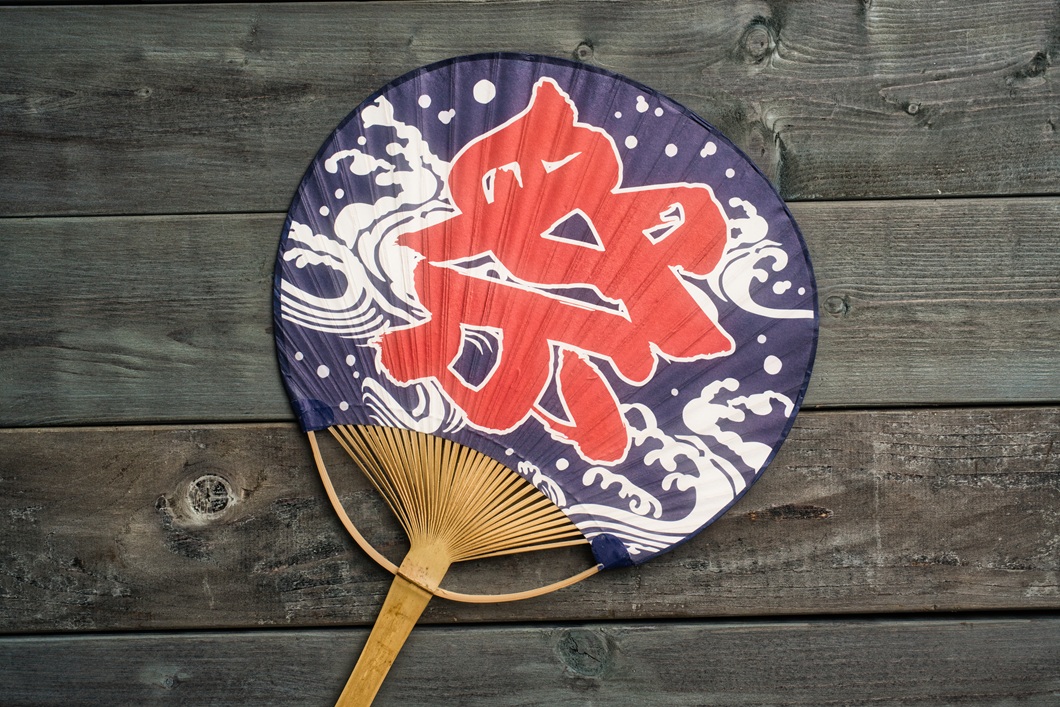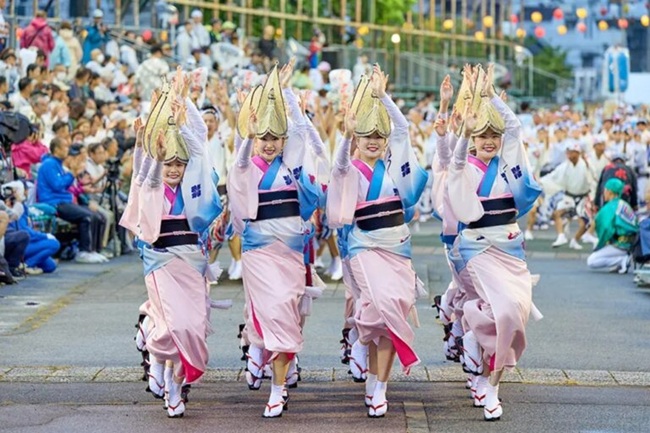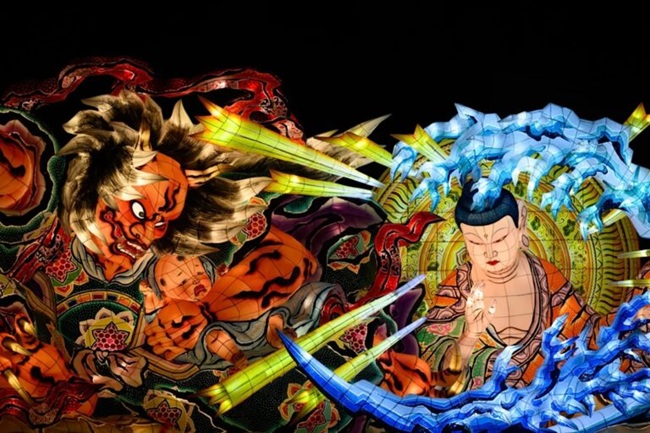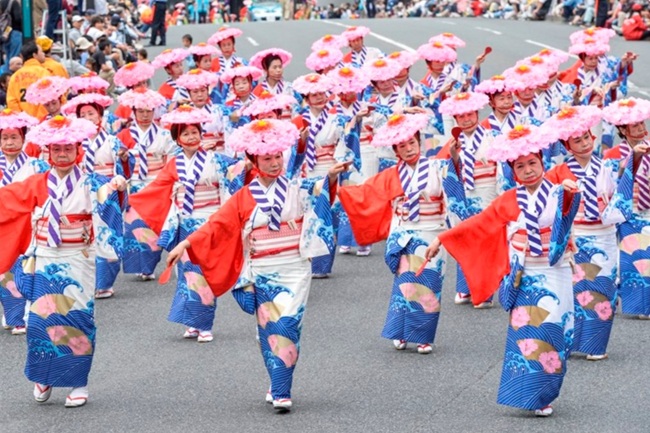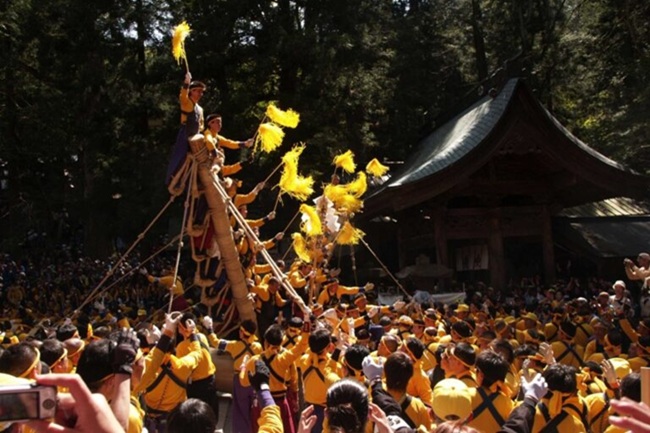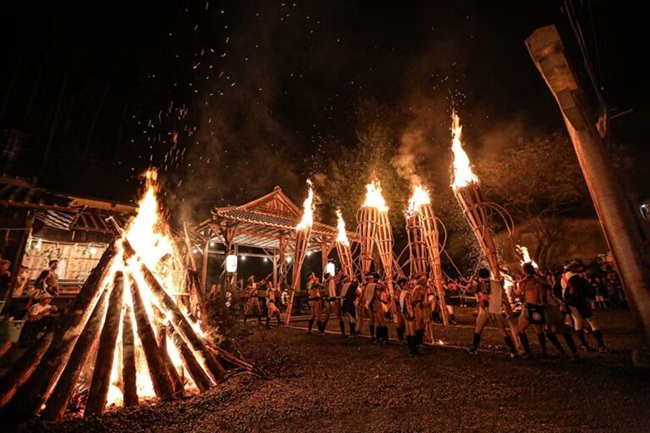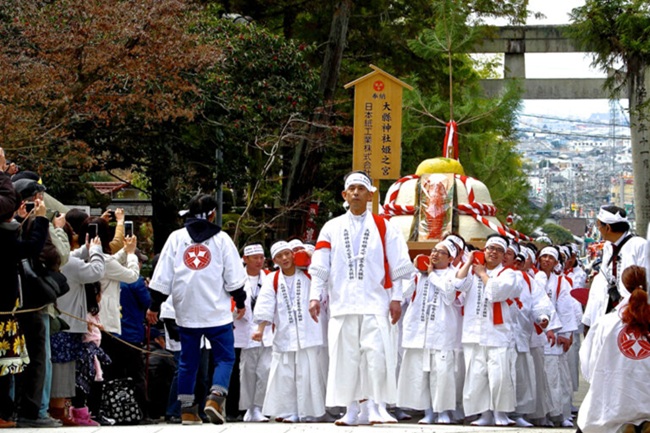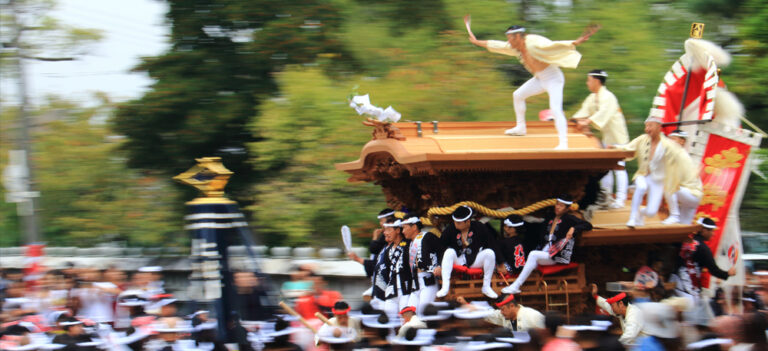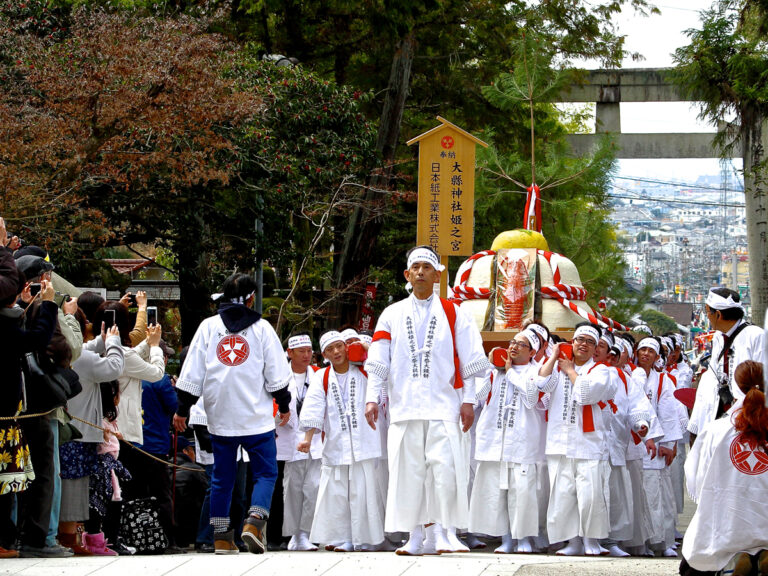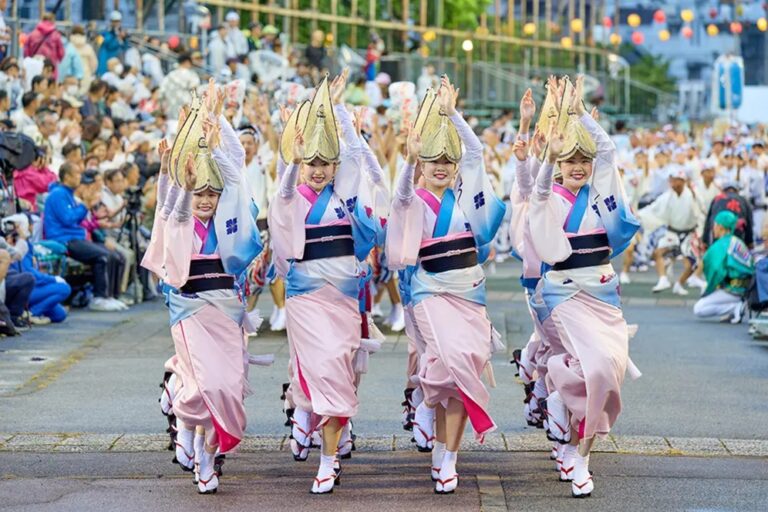Festival Glossary: Terms You’ll See at Japanese Matsuri
This glossary explains the words you’ll encounter at Japanese matsuri (festivals). Each entry tells you the meaning, where you’ll see it, and etiquette tips, with links to related festival guides.
People & Roles
氏子 (うじこ / ujiko) — shrine community member. Where: local festivals. Etiquette: follow staff lanes. Related: [Danijiri Matsuri]
大工方 (だいくがた / daikugata) — roof-top leader on danjiri. Where: Kishiwada. Etiquette: don’t obstruct the float path.
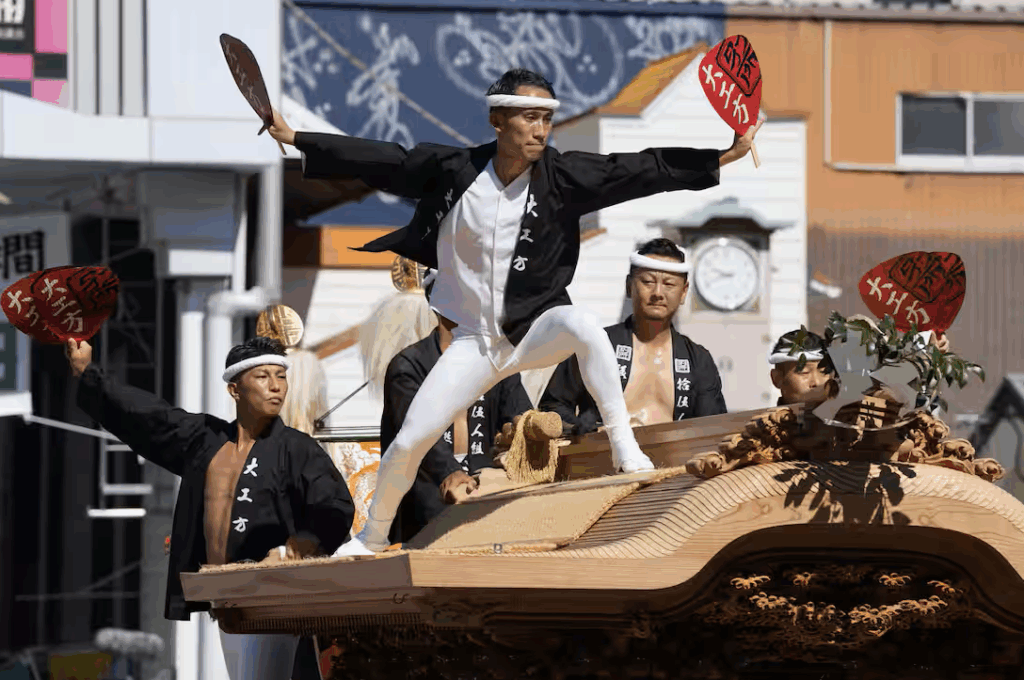
囃子方 (はやしかた / hayashikata) — musicians setting the pace. Where: many floats. Etiquette: don’t interrupt performance.
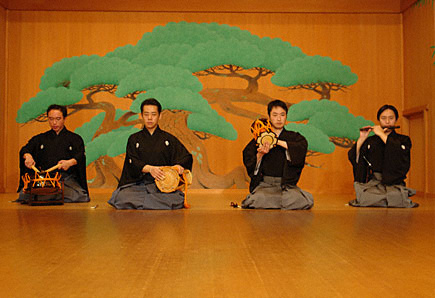 hayashi@nou
hayashi@nou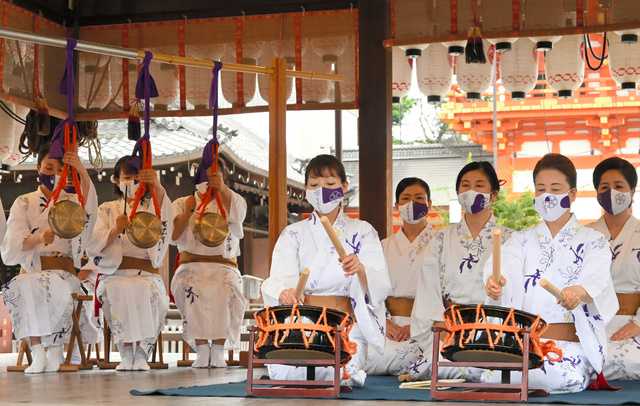 Shinto ritual hayashi
Shinto ritual hayashi Common festival hayashi
Common festival hayashi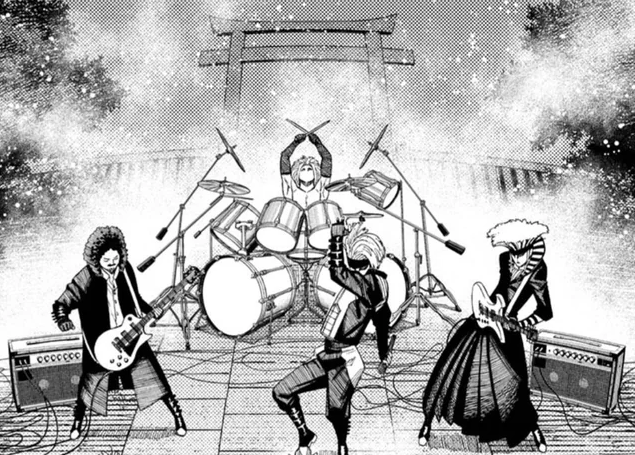 the-hayashi-band@dandadan
the-hayashi-band@dandadan
Various types of hayashi
連 (れん / ren) — Awa Odori dance troupe. Where: Awa Odori festivals. Etiquette: clap along.
Objects & Vehicles
山車 (だし / dashi) — festival float (pulled). Where: many regions. Etiquette: watch from the roadside.
山鉾 (やま・ほこ / yama, hoko) — Gion’s giant wheeled floats. Where: Kyoto. Etiquette: don’t touch floats.
御神輿 (おみこし / omikoshi) — portable shrine (carried). Where: Shinto festivals. Etiquette: clear the path.
地方車 (じかたしゃ / jikata-sha) — Yosakoi sound truck. Where: Kochi/Yosakoi. Etiquette: mind the volume.
たいまつ (taimatsu) — large torch. Where: fire festivals. Etiquette: stand back.
粽 (ちまき / chimaki) — protective charm (not for eating). Where: Gion. Etiquette: keep as amulet.

Movements & Techniques
やりまわし (yarimawashi) — high-speed cornering of a danjiri. Where: Kishiwada. Etiquette: stay safe.
辻回し (つじまわし / tsujimawashi) — pivot turn of a Gion float. Where: Kyoto. Etiquette: wait for guidance.
縄がらみ (なわがらみ / nawa-garami) — rope-lashing construction (no nails). Where: float building. Etiquette: observe.
渡御 (とぎょ / togyo) — procession of the deity (land/boat). Where: shrine festivals. Etiquette: bow when passing.
還御 (かんぎょ / kangyo) — return procession. Where: shrine festivals. Etiquette: same as above.
Ritual & Space
注連縄 (しめなわ / shimenawa) — sacred rope marking a boundary. Where: shrines. Etiquette: don’t cross.
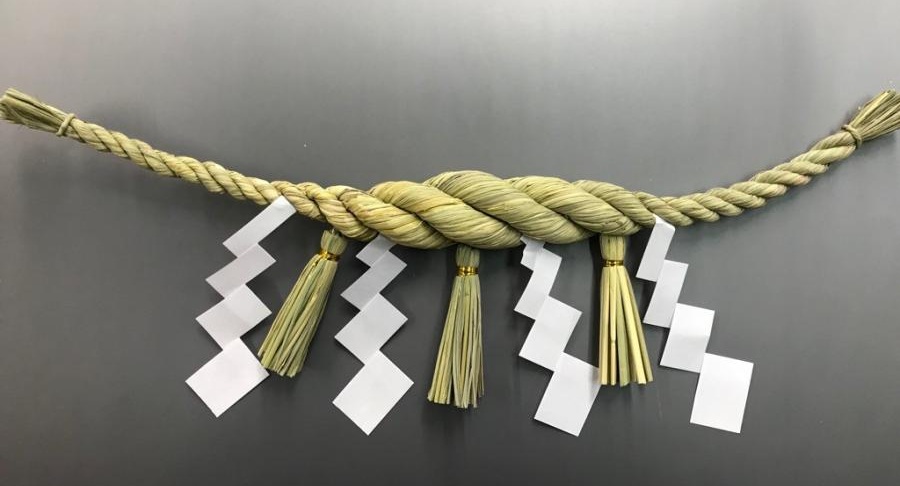
御旅所 (おたびしょ / otabisho) — temporary resting place for the deity. Where: shrine festivals. Etiquette: approach respectfully.
氏神 (うじがみ / ujigami) — local tutelary deity. Where: hometown shrines. Etiquette: bow when visiting.
Music & Calls
掛け声 (かけごえ / kakegoe) — coordinating shouts (e.g., sorya). Where: all festivals. Etiquette: join in if invited.
跳人 (はねと / haneto) — Nebuta’s leaping dancers. Where: Aomori Nebuta. Etiquette: proper costume to join.
Next Reads
Let’s see a real festival!
☛Festival Series

Editor and writer from Japan. Not the best at English, but I share real stories with heart and honesty — aiming to connect cultures and ideas that matter.

